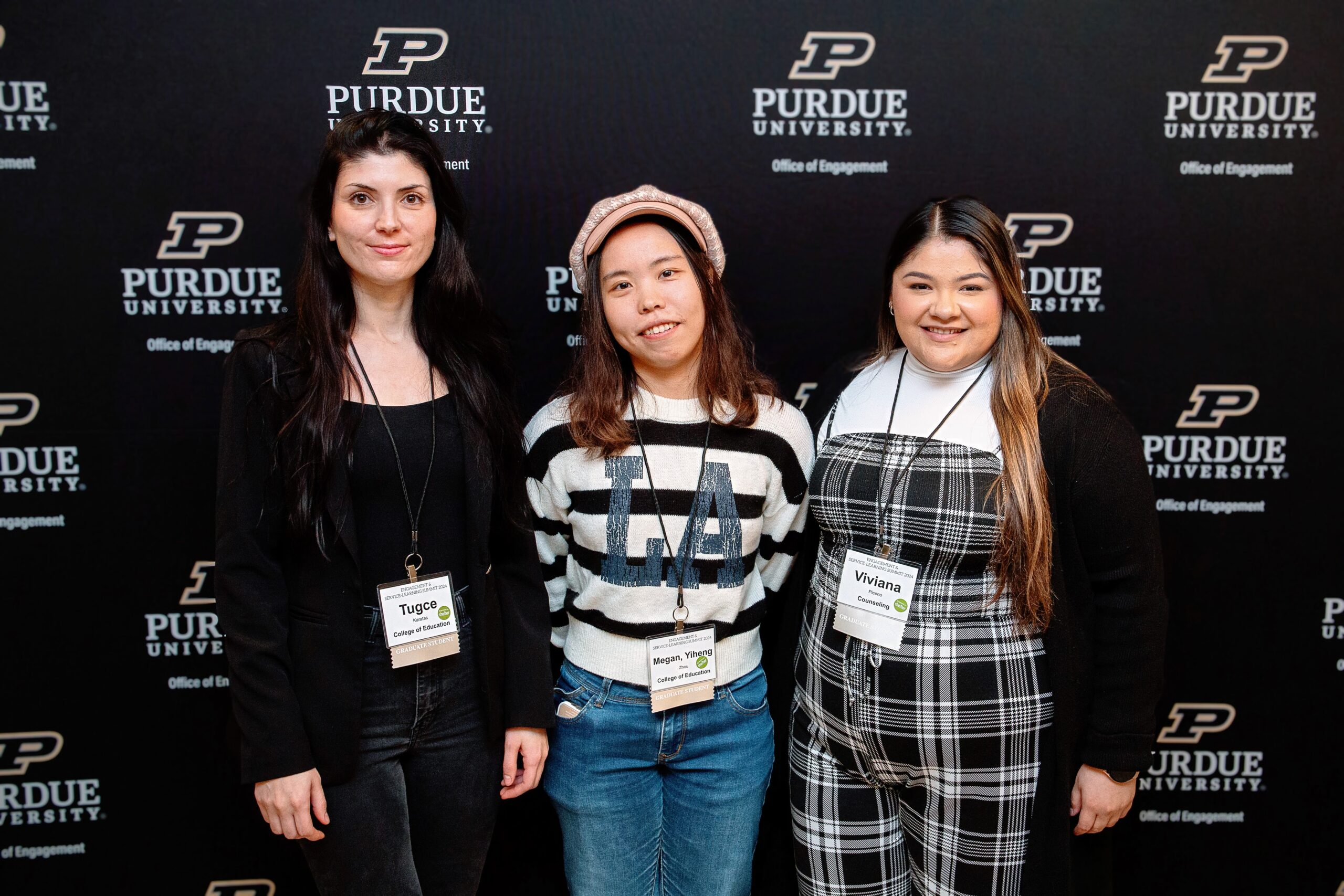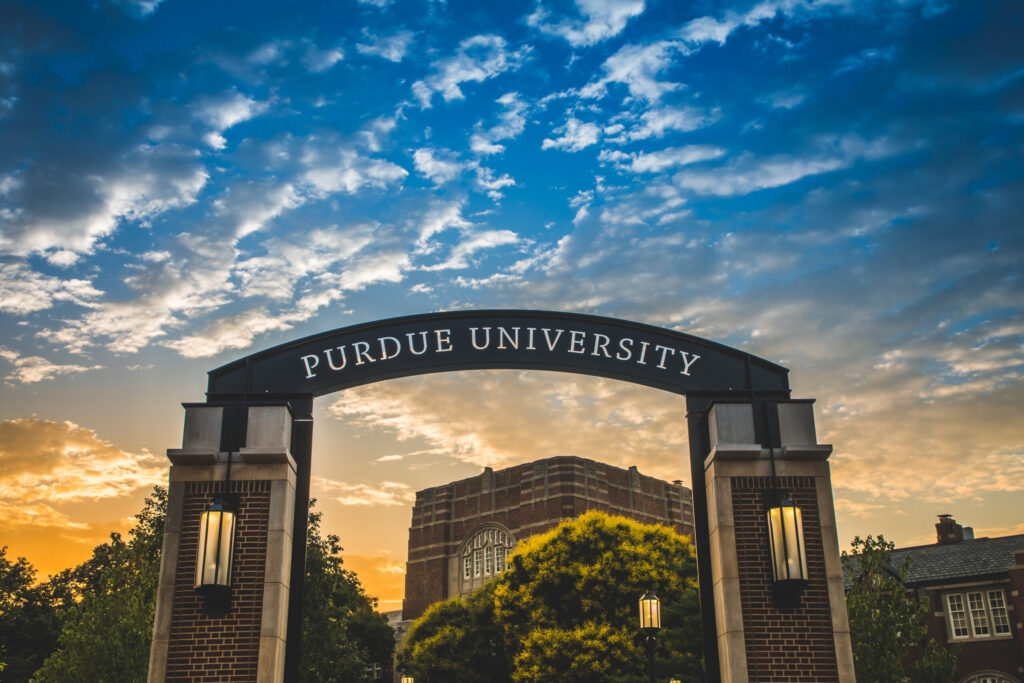What is Service-Learning?
At Purdue University, service-learning is an educational experience in which students: a) participate in an organized service activity that meets community-identified needs; b) use knowledge and skills directly related to a course, discipline and/or specific learning outcomes; and c) reflect on the service activity in such a way as to gain further understanding of course content and/or learning outcomes and an enhanced sense of personal values and civic responsibility. Service-learning can be academic or co-curricular in nature and should not be confused with volunteerism, community service, philanthropy, or advocacy.
10 YEARS OF…
SERVICE-LEARNING BY THE NUMBERS
INSTRUCTOR SPOTLIGHT

SERVICE-LEARNING FELLOWS
Collaborating with communities
Laura Bittner & Barbara Young; Patti and Rusty Rueff School of Design, Art, and Performance
STUDENT SPOTLIGHT

2024 STUDENT SHOWCASE
1st Place: Empowering youth as researchers through engaged scholarship
Tugce Karatas, Yiheng Zhou, Viviana Piceno, Amanda Case, & Nielsen Pereira; College of Education
Land Grant History
Land-grant universities emerged from a push for rapid industrialization in the United States and the need for a labor force equipped to meet the rising demand. Under the 1862 Morrill Act which came to be known as the Land Grant College Act, Vermont congressman Justin Smith Morrill called for government support of higher education to ensure access for all social classes. The Morrill Act forever changed the face of higher education in the U.S. and set up the expectation that universities had a responsibility to serve the state that supported them as well as contribute to the well-being of the country. Land-grant universities were established and granted each state federal land for the establishment of schools dedicated to teaching “agriculture and the mechanic arts”.

In accordance with Purdue policies, all persons have equal access to Purdue University’s educational programs, services and activities, without regard to race, religion, color, sex, age, national origin or ancestry, genetic information, marital status, parental status, sexual orientation, gender identity and expression, disability or status as a veteran. See Purdue’s Nondiscrimination Policy Statement. If you have any questions or concerns regarding these policies, please contact the Office of the Vice President for Ethics and Compliance at vpec@purdue.edu or 765-494-5830.
